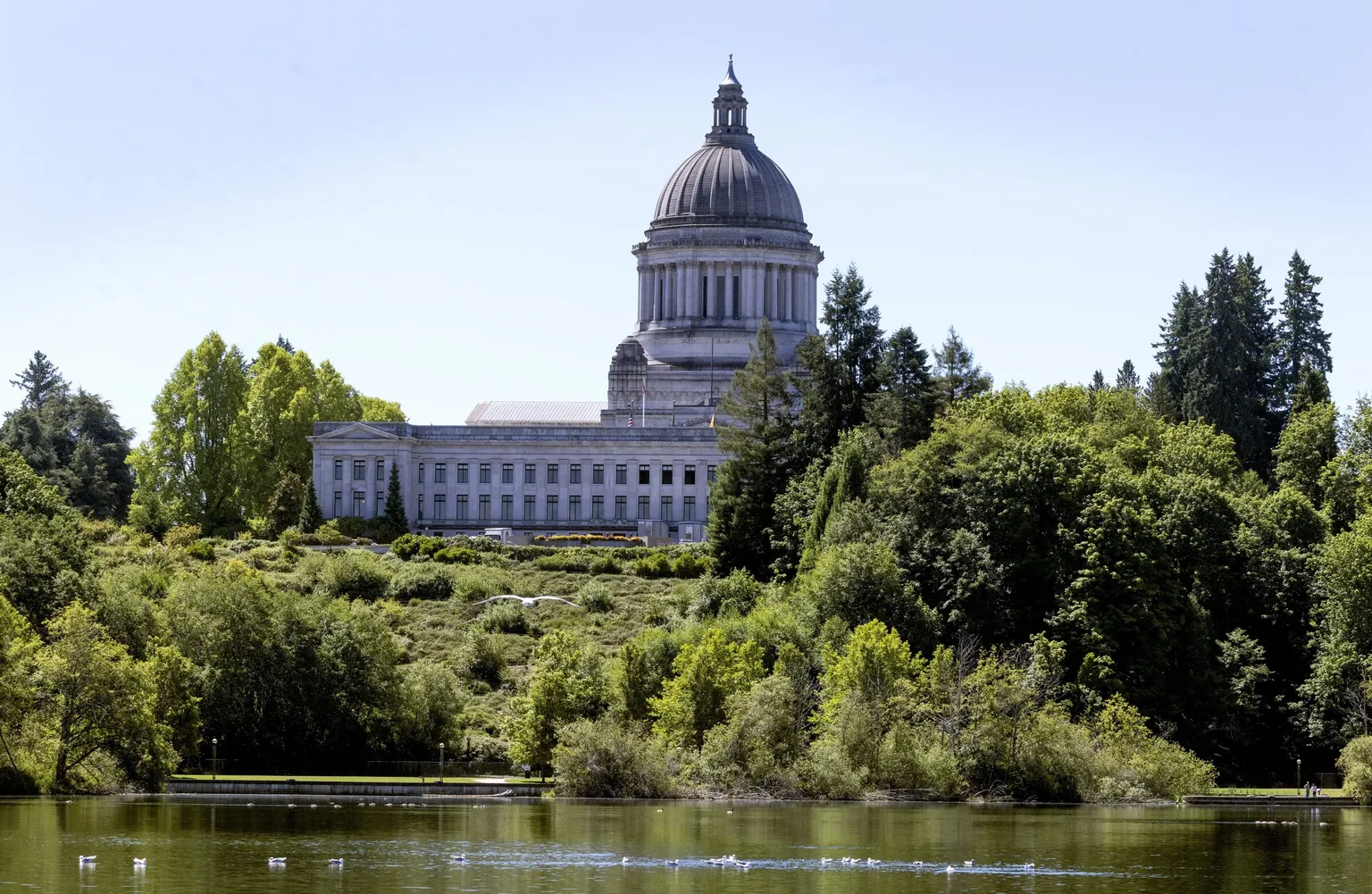OLYMPIA — A Thurston County Superior Court judge ruled Friday that the law allows Washington state lawmakers to withhold records that are “privileged.”
Although the scope of that privilege has yet to be precisely defined, transparency advocates were despondent after Friday’s ruling, worrying that it delivers a sharp blow to public access to legislative records. It’s now the second court ruling this fall to affirm such a privilege just a few years after the state Supreme Court decided lawmakers’ records were public.
“It’s a sad day for transparency in Washington state,” said Juli Bunting, executive director of the Washington Coalition for Open Government, one of the petitioners in the case, “when legislators can decide what information they’re going to give to the public and what information they’re not going to give to the public.”
Friday’s ruling came in a lawsuit filed in April by the coalition and Jamie Nixon, an open government advocate who worked on the state’s 2021 redistricting commission, against the state of Washington. (In the case, Seattle Times reporter Jim Brunner submitted a declaration stating he had requested records related to the state’s drug possession bill, also known as the Blake bill. The records ended up being heavily redacted).
After hearing arguments from each side for about 30 minutes, Judge Anne Egeler issued an order saying lawmakers may withhold “records revealing internal legislative deliberations concerning bills contemplated or introduced in either house of the Legislature.”
A lawyer for the Legislature, Jeffrey Even, had argued state statutes, including the Public Records Act, do not supersede the state constitution. He said Article II, Section 17 of the Washington Constitution, which protects members from civil or criminal liability for “words spoken in debate,” applies to legislative records. In court documents, Even and another lawyer, Jessica Goldman, also argued “respect for the rights and prerogatives of a coordinate branch of government lies at the heart of separation of powers and compels this Court to recognize legislative privilege.”
Egeler said states with similar or identical constitutional provisions have held that the speech and debate clause creates a privilege shielding documents as well as oral testimony, and recognize that state constitutional provisions “share a common purpose” with the federal speech and debate clause, which federal courts have also said applies to documents.
“State and federal courts recognize that this serves an important public interest by allowing legislators to engage in candid deliberations,” Egeler said during her ruling Friday. “In addition, it has an important role in maintaining the constitutional separation of powers.”
Lawmakers had maintained for years that their records were not public. In December 2019, after a lawsuit from multiple news organizations, including The Seattle Times, the Washington Supreme Court said that lawmakers were subject to the state’s Public Records Act. But just a few years later, in January, McClatchy reported that lawmakers were using a new justification for withholding records: “legislative privilege.”
It is not yet clear how far-reaching legislative privilege may be going forward. The case has been split into two parts, and Egeler is expected to make another ruling.
Egeler’s order says that “to the extent that it applies, legislative privilege is absolute.” Egeler also said during her ruling from the bench that as lawyers for the state conceded, the privilege “does not shield every legislative document” and does not extend to acts outside the legislative process.
After the ruling, transparency advocates expressed worry that the ruling could have far-reaching implications and threaten the state’s public records law, passed by voters in the early 1970s and viewed as a national model for promoting public access to government information.
Washington Coalition for Open Government Secretary George Erb said that the exemption has in the past been applied “haphazardly” and the definition has been vague.
Erb worried the state was about to enter “a new era of lack of transparency,” especially in the Legislature.
“It’s elected officials, who gather together to craft public policy in the people’s house,” Erb said. “Where’s the secrecy in that? The state legislature is not a private country club.”




